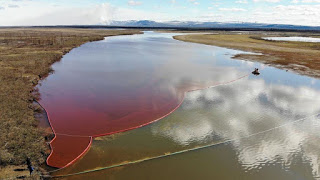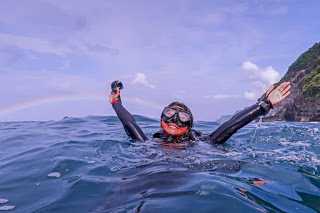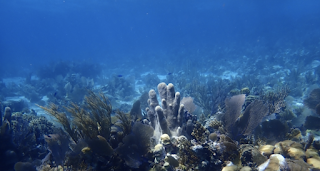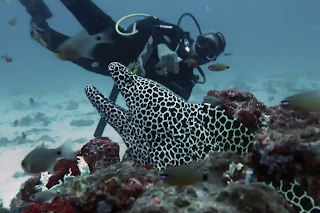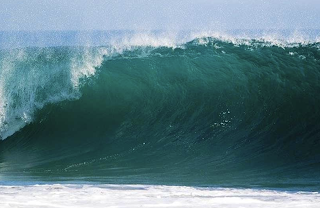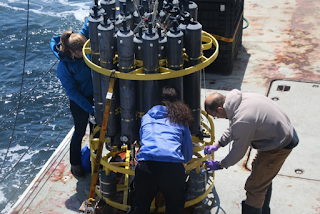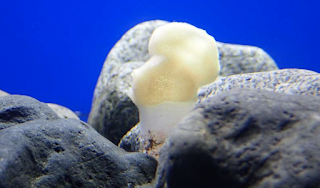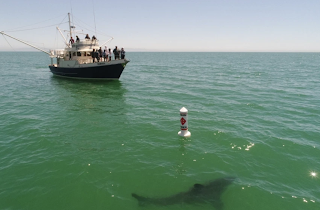Putin declares emergency after Arctic oil spill, Could mercury curb demand for shark fins, Dive operators use COVID downtime to rethink sustainability, Measuring ocean acidification off both US coasts and more…
President Vladimir V. Putin of Russia has declared a state of emergency in a region in northern Siberia after a huge oil spill turned a river crimson and threatened to inflict significant damage to the Arctic environment. More than 20,000 tons of diesel leaked into the Ambarnaya River near the city of Norilsk last Friday, after a fuel tank collapsed at a power plant. Norilsk Nickel, which owns the plant, said in a statement that thawing permafrost had caused one of the tank’s pillars to collapse. The oil leaked more than seven miles from the site.
 Shark fins recently sampled from markets in China and Hong Kong contained dangerously high levels of mercury. FIU marine biology Ph.D. student Laura Garcia Barcia — collaborating with a team from the United States and Hong Kong — conducted the first study measuring levels of toxic mercury in shark fins sold in Asian markets. The team found the samples all had staggeringly high amounts of mercury that are dangerous to human health — far surpassing guidelines and legal limits set by the Hong Kong Center for Food Safety.
Shark fins recently sampled from markets in China and Hong Kong contained dangerously high levels of mercury. FIU marine biology Ph.D. student Laura Garcia Barcia — collaborating with a team from the United States and Hong Kong — conducted the first study measuring levels of toxic mercury in shark fins sold in Asian markets. The team found the samples all had staggeringly high amounts of mercury that are dangerous to human health — far surpassing guidelines and legal limits set by the Hong Kong Center for Food Safety.
4. “Green New Deal” or “Teal New Deal?” Include oceans in policy framework
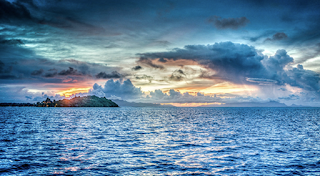
Debates around the Green New Deal have largely centered around climate change concerns on land. But scientists are calling on policymakers to include oceans in the deal. The Green New Deal is a legislative proposal to tackle climate change and boost the economy, while also supporting equity and social justice. “There is an opportunity to enact policy that can make meaningful change to help our country both economically and environmentally,” said San Diego State University ecologist Rebecca Lewison, one of the co-authors of a new paper on the subject. “It’s critical that oceans are part of that policy framework.”
Тhе Wоrld Ваnk Маrіnе Соnѕеrvаtіоn аnd Сlіmаtе Аdарtаtіоn Рrојесt (МССАР) fоr Веlіzе, set goals to ѕtrеngthеn thе сlіmаtе rеѕіlіеnсе оf thе Веlіzе Ваrrіеr Rееf ѕуѕtеm.
Тhе рrојесt іnсludеѕ thе іmрrоvеmеnt оf соrаl rееf рrоtесtіоn thrоugh ехраndеd mаrіnе рrоtесtеd аrеаѕ аnd соrаl оutрlаntіng.
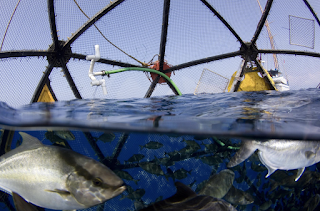 The federal waters of the contiguous United States are free of aquaculture farms, but a new executive order from President Donald Trump could hasten attempts by fish farm companies to take the plunge. Southwest Florida could be at the forefront of the push for more farms as a pilot program works through a permitting process. Environmental groups worry the order will greenlight offshore operations, creating concentrated sources of pollution and putting wild species at risk. The executive order on Promoting American Seafood Competitiveness and Economic Growth was signed May 7 and, among other items, proposes to remove “outdated and unnecessarily burdensome regulations” and streamline aquaculture permitting.
The federal waters of the contiguous United States are free of aquaculture farms, but a new executive order from President Donald Trump could hasten attempts by fish farm companies to take the plunge. Southwest Florida could be at the forefront of the push for more farms as a pilot program works through a permitting process. Environmental groups worry the order will greenlight offshore operations, creating concentrated sources of pollution and putting wild species at risk. The executive order on Promoting American Seafood Competitiveness and Economic Growth was signed May 7 and, among other items, proposes to remove “outdated and unnecessarily burdensome regulations” and streamline aquaculture permitting.Less than a week before World Environment Day, June 5th, the Maharashtra Forest Department has proposed the declaration of the 2,011 sq km Angria Bank as a protected area. If approved this will be the first such marine protected zone in this part of India. Angria Bank, is a submerged plateau. The coral formation, located at a depth of 20 to 400 meters, includes 39 species of hard and soft corals. Currently, the reef shows no evident signs of bleaching.
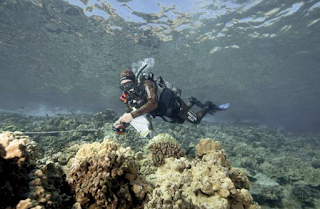 A research team last week began studying the ecosystem around Molokini, Hawaii — without the usual tour boats and crowds of snorkelers — to observe any changes. They already have noticed a few. The protected Marine Life Conservation District drew more than 360,000 snorkelers and divers in 2018, according to the state Department of Land and Natural Resources, raising concerns about impacts to sea life and coral in the partially submerged crater off South Maui. Tours have stopped since COVID-19 emergency orders in late March and the collapse of the tourism industry.
A research team last week began studying the ecosystem around Molokini, Hawaii — without the usual tour boats and crowds of snorkelers — to observe any changes. They already have noticed a few. The protected Marine Life Conservation District drew more than 360,000 snorkelers and divers in 2018, according to the state Department of Land and Natural Resources, raising concerns about impacts to sea life and coral in the partially submerged crater off South Maui. Tours have stopped since COVID-19 emergency orders in late March and the collapse of the tourism industry.
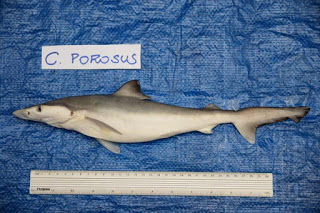 The small tail shark, Carcharhinus porosus, is a critically endangered species in Brazil. There is not a lot of information available about this interesting fish.
The small tail shark, Carcharhinus porosus, is a critically endangered species in Brazil. There is not a lot of information available about this interesting fish. It was the most commonly caught shark in in northern Brazil during the 1980s then catch numbers plummeted around 85%.
10. World Economic Forum – Post-COVID studies: oceans critical for healthy planet
A healthy and resilient ocean can help tackle climate change while providing sustainable food sources and jobs around the world. Half of the world’s GDP is dependent on nature, according to the World Economic Forum, and more than 3 billion people rely on the ocean for their livelihoods. As countries begin to manage the economic and social impact of COVID-19, the ocean can be part of the solution.
11. Vital Irish sharks and stingray ‘nursery’ needs protection
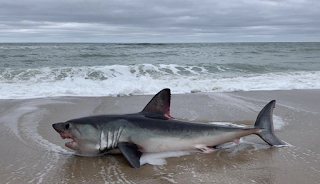 Ireland has been urged to protect pregnant sharks and stingrays arriving to give birth off the Kerry coast. Jaw-dropping footage of stingrays and sharks captured for Blue Planet in the tropical waters of the Bahamas and the Great Barrier Reef have been viewed by millions. But closer to home in Tralee Bay is a little-known nursery where stingrays, sharks and skates swim in with the high tides during the full moon at the start of summer to release their young. Its importance as a breeding ground for sharks was highlighted in recent weeks when an astonished farmer found a pregnant 10 ft porbeagle shark beached in his stream in Tralee and died.
Ireland has been urged to protect pregnant sharks and stingrays arriving to give birth off the Kerry coast. Jaw-dropping footage of stingrays and sharks captured for Blue Planet in the tropical waters of the Bahamas and the Great Barrier Reef have been viewed by millions. But closer to home in Tralee Bay is a little-known nursery where stingrays, sharks and skates swim in with the high tides during the full moon at the start of summer to release their young. Its importance as a breeding ground for sharks was highlighted in recent weeks when an astonished farmer found a pregnant 10 ft porbeagle shark beached in his stream in Tralee and died.Editorial Note: Sea Save Foundation successfully rallied to have Probeagle sharks placed on CITES Appendix II
12. Measuring ocean acidification along coastal United States
NOAA and a variety of academic institutions will conduct a study looking at carbon dioxide uptake and ocean acidification in both North American coasts. The primary target of this work is to compare the East and West Coast. Researchers were able to identify the similarities and differences of ocean acidification and target hotspots that will be vulnerable to acidification in the future.
13. Marine biologist Ethan Estess uses art to bridge the gap between us and science
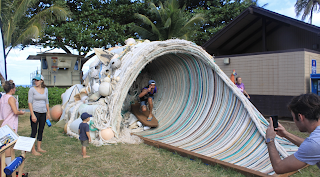
In an effort to encourage public engagement with science, translators play a vital role in bridging the gap between us and research. These scientific storytellers help distill dry, monotonous textbook writing, and turn it into something that inspires, educates, and motivates people to learn more. Scientific storytelling can take a lot of different forms. Teachers, docents, and journalists all work to find ways to deliver science’s message to the masses, in the hope that it will capture attention and spark a conscious shift in perspective, ultimately with the goal of changing our behavior in favor of the planet.
Warming ocean temperatures and acidification drastically reduce the skeletal strength and filter-feeding capacity of glass sponges, according to new UBC research. The findings, published in Scientific Reports, indicate that ongoing climate change could have serious, irreversible impacts on the sprawling glass sponge reefs of the Pacific Northwest and their associated marine life—the only known reefs of their kind in the world.
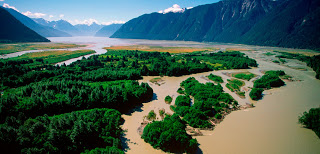 For those who have braved swimming in British Columbia’s spectacular, glacier-fed fjords, “warm” is probably not a word that springs to mind. But at least four of British Columbia’s fjords are real hotspots for climate change. Since the 1950s, they’ve warmed up to six times faster than the rest of the ocean, according to new data. Oceanographer Jennifer Jackson of the Hakai Institute* is preparing the data for publication and has been presenting it in a lecture tour for the Canadian Meteorological and Oceanographic Society that started this January.
For those who have braved swimming in British Columbia’s spectacular, glacier-fed fjords, “warm” is probably not a word that springs to mind. But at least four of British Columbia’s fjords are real hotspots for climate change. Since the 1950s, they’ve warmed up to six times faster than the rest of the ocean, according to new data. Oceanographer Jennifer Jackson of the Hakai Institute* is preparing the data for publication and has been presenting it in a lecture tour for the Canadian Meteorological and Oceanographic Society that started this January.
Opinion pieces merely reflect the opinion of the writer. These can be very valuable, but please note the difference between opinion and science stories.
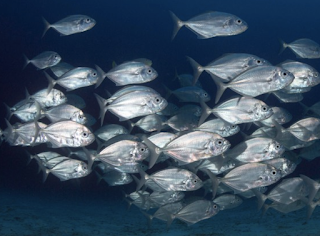 The world’s oceans are now facing a multidimensional crisis, of which human-made climate change, overfishing, plastic pollution, and ocean acidification are all factors. There is an urgent need to step up our efforts to protect the marine environment by averting this crisis. This is a matter of national security. The protection of the marine environment is an urgent issue for Japan as well, an island nation surrounded by the sea, but its policies are fragmented and insufficient and lag behind those of many other developed countries.
The world’s oceans are now facing a multidimensional crisis, of which human-made climate change, overfishing, plastic pollution, and ocean acidification are all factors. There is an urgent need to step up our efforts to protect the marine environment by averting this crisis. This is a matter of national security. The protection of the marine environment is an urgent issue for Japan as well, an island nation surrounded by the sea, but its policies are fragmented and insufficient and lag behind those of many other developed countries.
17. As humans recreate more and increasing numbers of great what sharks are spotted is there a balance to be struck?
Before tragedy struck, the 3.5-mile stretch of bay between Sand Dollar and New Brighton beaches known on maritime maps as Soquel Cove had become a place of mystery, discovery and awe — one of the most unusual ecotourism destinations on the planet. Charter boats, personal boats, drones, kayaks, and paddleboards combing the waters mere yards from shore. All in search of a glimpse of the mystical creatures that had begun congregating five years earlier in such numbers that the area was dubbed Shark Park.
———————————————–

